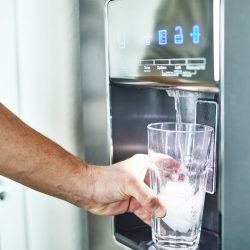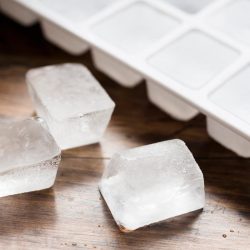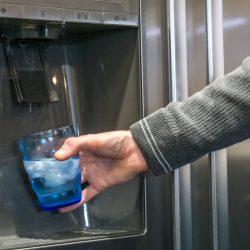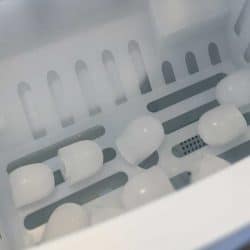Having clean water to use throughout your day is something we can all be grateful about. However, we have to keep an eye on the components inside the fridge. How long do refrigerator water filters last? If that's what you're wondering, we've researched the matter for you!
The general rule is to change the water filter every six months. However, depending on a couple of factors, that timeframe can be shorter. The main factor would be the water hardness of your area. How frequently you use the water dispenser or the ice maker is the other.
So, how do these two factors affect the water that comes out of the dispenser and the ice maker? What if we don't change the refrigerator's water filter at all? These are aspects you should consider. This way, you can become familiar with what it takes to maintain quality water. To learn more, keep reading ahead.
![Removing a refrigerator water filter in a modern appliance, How Long Should Refrigerator Water Filters Last? [And When To Replace Them]](https://kitchenseer.com/wp-content/uploads/2022/01/How-Long-Should-Refrigerator-Water-Filters-Last-And-When-To-Replace-Them-667x1000.png)
Understanding the Role of a Water Filter
If we want to understand why we have to change the filter periodically, let's become familiar with what a filter does. As you can guess, it separates contaminants from the water you consume. But, what exactly is it protecting you from?
As some suggest, refrigerator water filters remove three major contaminants: lead, chlorine, and volatile organic compounds. They filter these contaminants using sediment and carbon filters.
It works in three stages. First, it goes through a particle filtration stage. Meaning, it separates large particles like sand and silt from the water.
Then, it goes through a micro-filtration stage that filters smaller contaminants like sugars. Lastly, the absorption stage separates contaminants at the atomic level.
How does water pick up these contaminants? The water you access using the dispenser goes through miles of pipes before it gets to you. On the way to your fridge, it will collect a lot of grime.
Safe To Drink Water Isn't Quality Water
Depending on your environmental conditions, if you were to access the water from the area without a filter, it might potentially smell and taste bad. Even if it doesn't look dirty, it can still carry some contaminants.
Heavy metals, pesticides, and organic waste can seep into water supplies without you knowing. Worst of all, the only way you'd know they're in your water is when you're close enough to catch a whiff of them when taking a sip. A bad odor would be the first tell-tale sign.
When no smell accompanies contaminated water, the taste is usually compromised. Have you ever drank a cup of water that tasted metallic? It would indicate there are heavy metals present. Some would suggest that it wouldn't be a big deal health-wise depending on the source of the taste.
If it comes from iron, it won't pose health issues generally. That would make the water safe to drink. But, does safe mean quality? Not necessarily.
So, as we can see, water filters do more than provide good-looking water. They filter out many contaminants that you wouldn't want to ingest.
When Should You Change Water Filters
So, what would influence how often you have to change your refrigerator's water filter? As mentioned, it depends on two factors. The area you live in and how frequently you use the water dispenser can influence how often you switch it out for a new one.
Some areas, like Chicago, have more lead present in their water lines than other states. So, you'd likely have to change your refrigerator's filter more frequently in this type of state. In general, make sure you swap it out every six months.
Make sure to keep it within that timeframe. Otherwise, two situations can happen. The first would relate to the performance of your fridge. The other would relate to the quality of the water you use.
How Do You Know if Your Refrigerator Water Filter Is Bad?
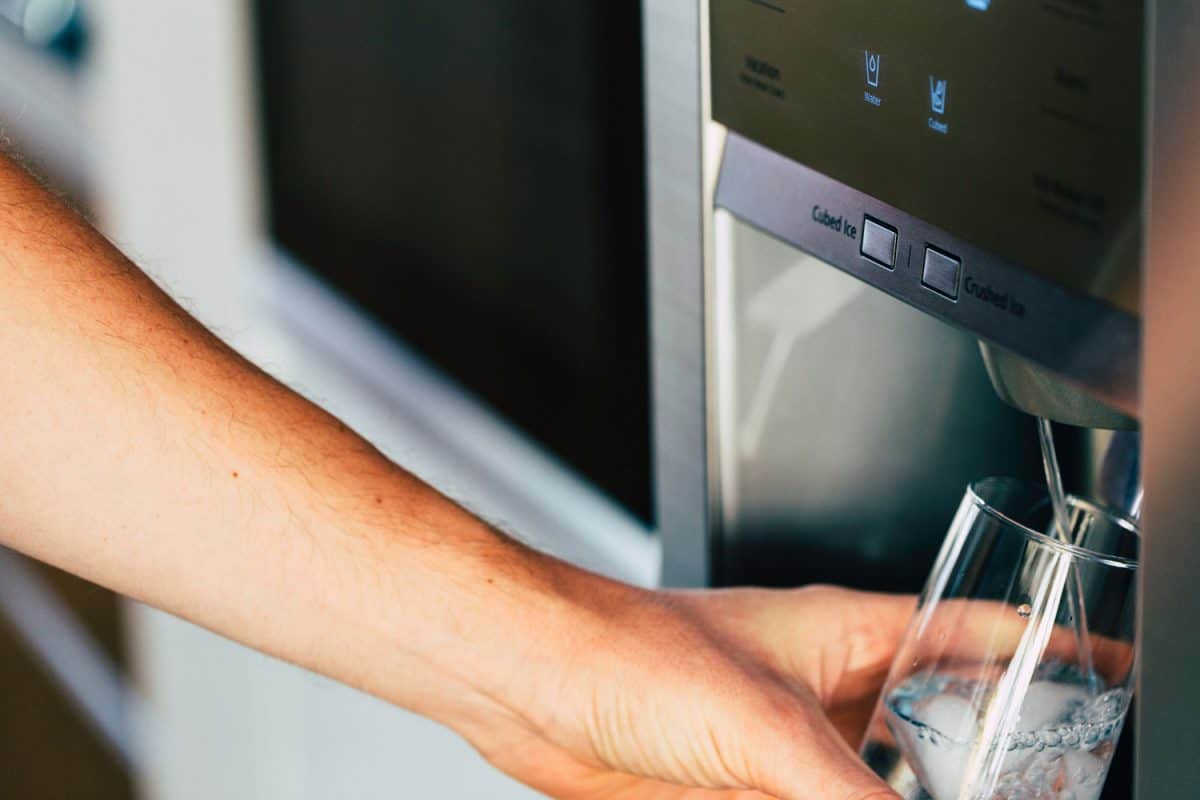
It isn't the end of the world if you forget to change your filter every six months. But, the longer you stall, the more likely the contaminants the filter separates from your drinking water make their way to your glass. How can you tell your filter needs changing?
Change in Flavor
The first sign would be taste. Water from your fridge will usually taste like nothing. At worst, it would have a faint plastic flavor. Once it starts developing a flavor that doesn't fit the two descriptions above, it could indicate that your filter is no longer separating contaminants from the water.
Slow Trickling
Another symptom might come along with this terrible taste. Is your dispenser having trouble bringing out water? If water trickles slowly, the filter is likely clogged with particles. As a result, water will have a harder time passing through the filter.
Murky Appearance
The most telling sign affects the appearance of your water. If the water is no longer clear and it's coming out murky, it's a sign to avoid consuming it. A change in appearance means there are enough contaminants in the water to be visible.
A Few Changes In Ice
Changes in taste, smell, and appearance with your ice maker can be due to several reasons. A dirty ice bin or freezer are some - to name a few. But, if everything's well-maintained - but your ice leaves a sour, metallic smell - an old water filter could be the culprit.
In addition, if your filter is more than six months old, black specks shouldn't be a regular occurrence. Some would suggest it's typical to see it when letting a new filter settle. In older filters, if you see black specks, it could be that the mesh is no longer keeping the charcoal contained.
What Happens if You Do Not Change the Fridge Water Filter?
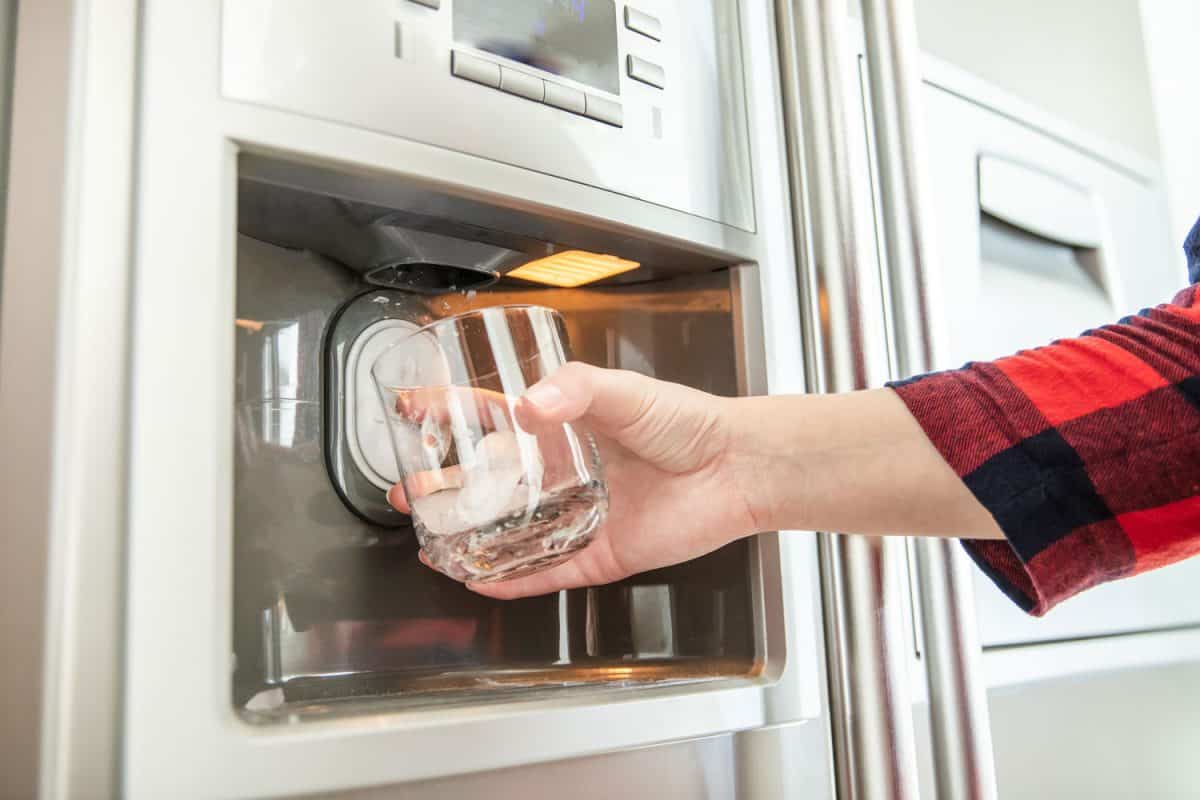
So, what happens if you decide to endure the changes in the water? In other words, you use the filter for more months to come instead of swapping it out for a new one. That's where the small problems can become more noticeable ones.
It might not be too much of a sacrifice as long as the water's running. But, if you don't change your filter, it will build up around the dispenser and ice maker.
This situation negatively affects the quality of your water. Additionally, it can damage your fridge by slowing down the entire system.
Is It Safe To Drink Water From an Expired Filter?
Consequently, it leads us to the more important question, is it safe to drink water from an expired filter? We've mentioned above that the filter separates contaminants like lead, chlorine, and volatile organic compounds.
Once the filter clogs with these contaminants, it has the potential to leak into your drinking water. Thus, it isn't a good idea to continue using the dispenser if this is the case. What exactly will you be consuming if the filter isn't doing its job?
These are some of the compounds that you might ingest if you let the problem persist:
- Pesticides
- Arsenic
- Asbestos
- Lead
- Heavy metals
- Excess chlorine and fluoride - this one isn't too big of a deal generally. But, it does have a noticeable change in the flavor of your drinking water.
How Do You Clean a Refrigerator Water Filter and Reuse It?
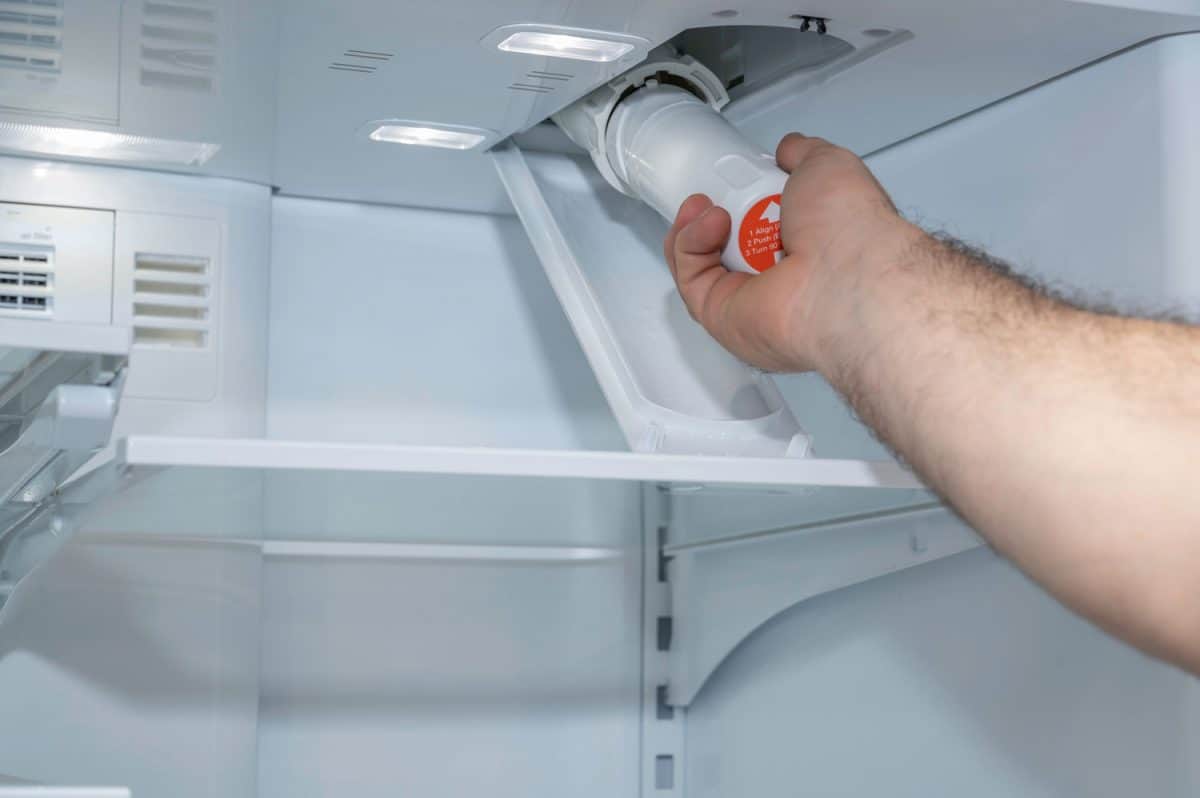
Not all situations are the same. In some cases, you can extend the lifespan of the filter you're currently using. If it doesn't appear too dirty and shows no signs of damage, you can clean and reuse it!
Cleaning your filter is an easy process. The hard part would be finding it. For this reason, you should consult your user's manual to see where you can find it. The filter might be at:
- The grille of the fridge near the base
- Near the upper right-hand corner of the inside
- Inside the door
Once you've found it, you can turn it counterclockwise to disengage it. All that's left to do is pull it out. Inspect closely to see if cleaning it is a viable option. Otherwise, it would be best if you buy a new one.
Soaking the Filter
This step will require a container and cooking white vinegar. The container should be large enough to allow you to submerge the filter in white vinegar. Let it soak for 24 hours.
Rinsing the Filter
Once 24 hours have gone by, you can rinse the filter in the sink to remove as much white vinegar as possible. You can do taste tests while rinsing to determine if there's still vinegar inside the filter.
Placing It Back and Testing
Once you finish rinsing the filter in the sink, place it back in position. Lock it into place.
Then, serve yourself a cup of water and do a taste test. If you find there's still a vinegar flavor, you will need to flush it out by dispensing several cups of water.
If you need visual help, here's a YouTube video demonstrating the process:
Why Is My Fridge Water Cloudy After Changing the Filter?
As the manufacturer Whirlpool suggests, cloudy water is standard if you've recently changed the filter. To solve this issue, you need to flush the water system. Air in the water line is likely the culprit for cloudy water.
Final Takeaway
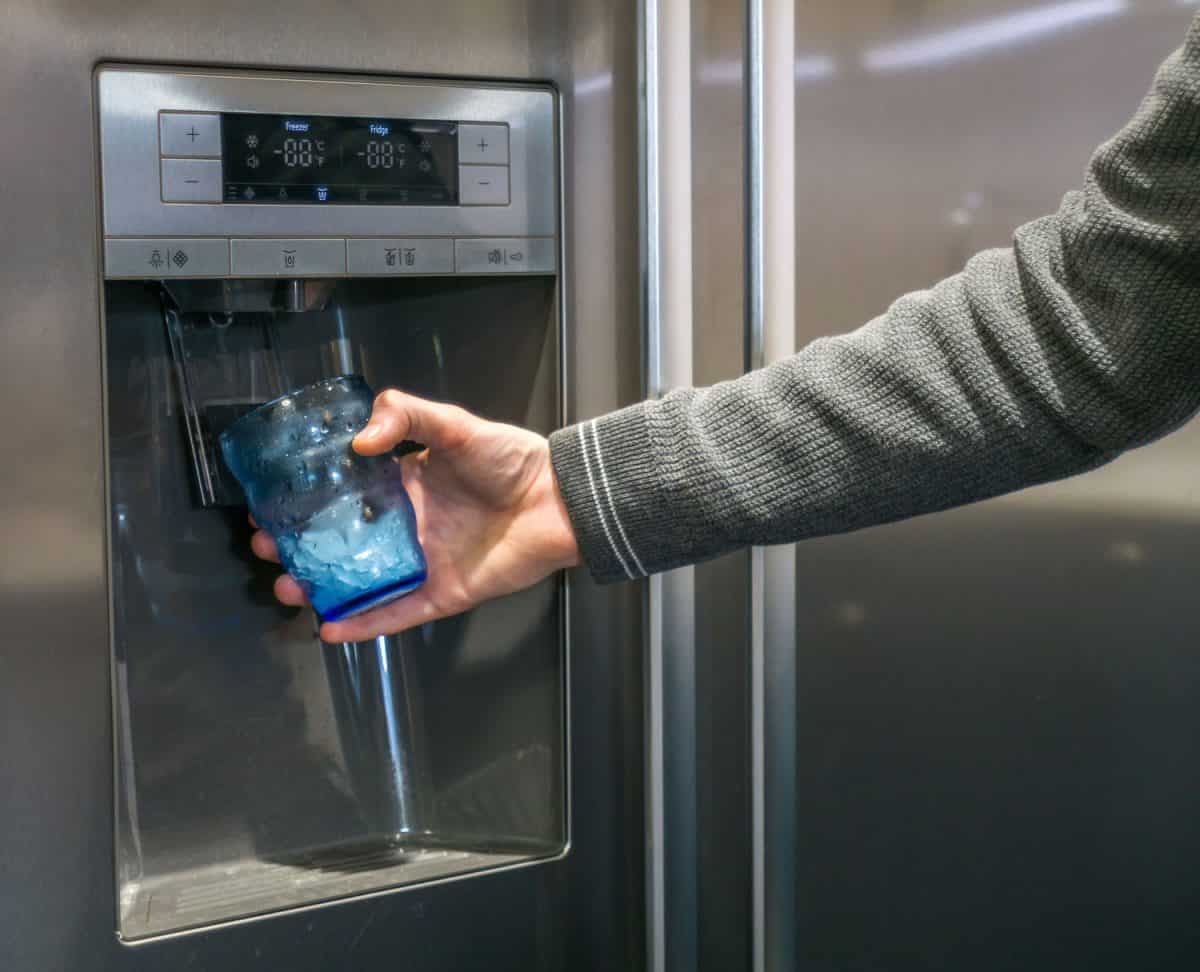
Clean water requires routine maintenance. If you want to keep your refreshing cups of water, you need to replace your fridge's filter every six months. We hope you found the information above helpful!
Before you go, do you have other filter concerns? Do you own a Whirlpool fridge? If you're curious to know if yours has a filter, check out our post:
Do Whirlpool Refrigerators Have Water Filters? [And When To Replace Them]
Need help replacing a water filter in a Bosch refrigerator? To find out how to do so, check out our post:
How To Replace Water Filter In Bosch Refrigerator

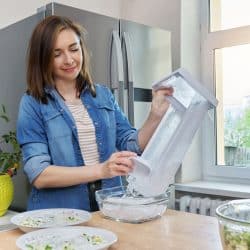
![Removing a refrigerator water filter in a modern appliance, Do Whirlpool Refrigerators Have Water Filters? [And When To Replace Them]](https://kitchenseer.com/wp-content/uploads/2021/12/emale-Hand-Changing-Refrigerator-Water-Filter-250x250.jpg)
